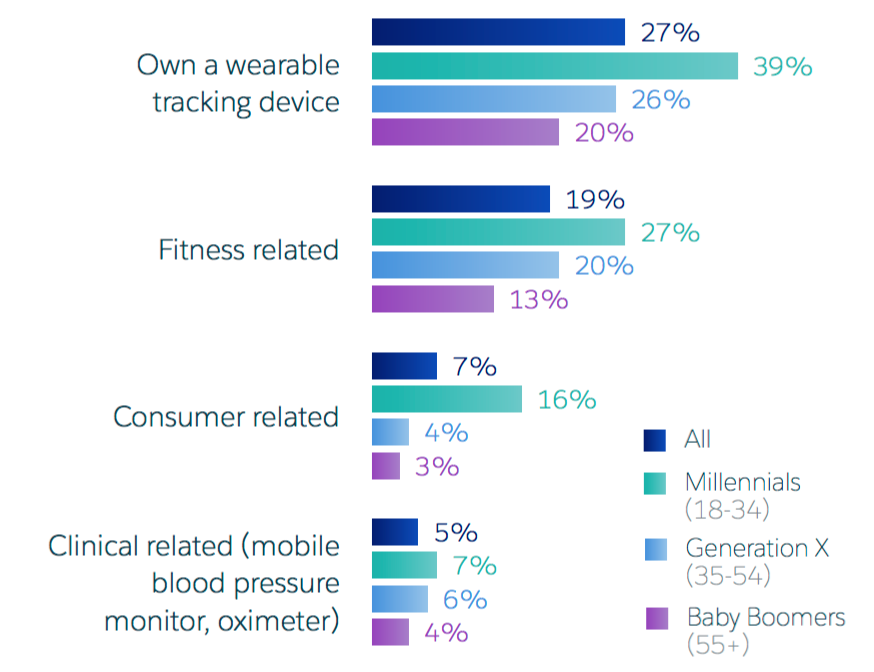 According to a new survey conducted by Harris Poll and commissioned by Salesforce, 59 percent of all consumers, and 70 percent of millennials, would choose a primary care physician who offers a patient-facing app over one who doesn't.
According to a new survey conducted by Harris Poll and commissioned by Salesforce, 59 percent of all consumers, and 70 percent of millennials, would choose a primary care physician who offers a patient-facing app over one who doesn't.
The survey results included 2,025 US adults aged 18 and older, among whom 1,736 have health insurance and a primary care doctor.
The survey showed that by and large, those surveyed aren't taking ownership of their own health records. Asked how they keep track of their health records, 62 percent said they relied on their doctor to do so. Twenty-five percent used a single patient portal and 15 percent managed their record on two or more portals. Just 6 percent had an independent, personal electronic record, but 29 percent had their own physical method -- along the lines of a file folder or shoe box.
Sixty-three percent of those surveyed said their doctor provided some kind of virtual care. Fifty three percent said they had access to a doctor or nurse over the phone, 28 percent over email, and 10 percent via an app or mobile device.
Asked why they valued virtual care, 74 percent said it was for the convenience. Fifty-two percent said it was easier for their schedule, and 33 and 27 percent, respectively, cited the reduced risk of getting sicker and increased privacy.
In addition to the 59 percent that would choose a physician with an app over one without, 60 percent would choose a physician who offers home care over one that doesn't and 46 percent would choose one who offers virtual treatment options over one who doesn't. Just 38 percent whould choose a doctor "who uses data from patient’s wearable devices to manage health outcomes" over one that doesn't, but that number went up to 50 percent for millennials and down to 29 percent for baby boomers.
Millennials were more likely to own a wearable device (39 percent versus 20 percent of boomers) but boomers were more likely to wear it daily (66 percent of boomers versus 43 percent of millennials). Overall, 27 percent of respondents owned a tracker and 55 percent wore it daily. Millennials were most likely to wear theirs a few times a week. Seventy-eight percent said they would want their doctor to have access to the data from their wearable.
Respondents said they would be a little more willing to wear a wearable from their insurer than from their doctor. Fifty percent said they would wear a wearable from their doctor that provided support for managing health in exchange for their data, whereas 53 percent said they would wear a wearable from their insurer that provided lower rates in exchange for their data.
In general, patients were still communicating with their doctors in person and over the phone for most use cases, though millennials were more likely than baby boomers or Gen-Xers to use technology for things like making appointments or checking test results. The interesting exception was prescription refills, which millennials were more likely to do in person, while boomers were more likely to use the phone. Boomers were also more likely than millennials to refill their prescription via a patient portal, email, or snail mail.

















